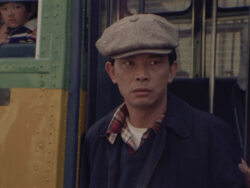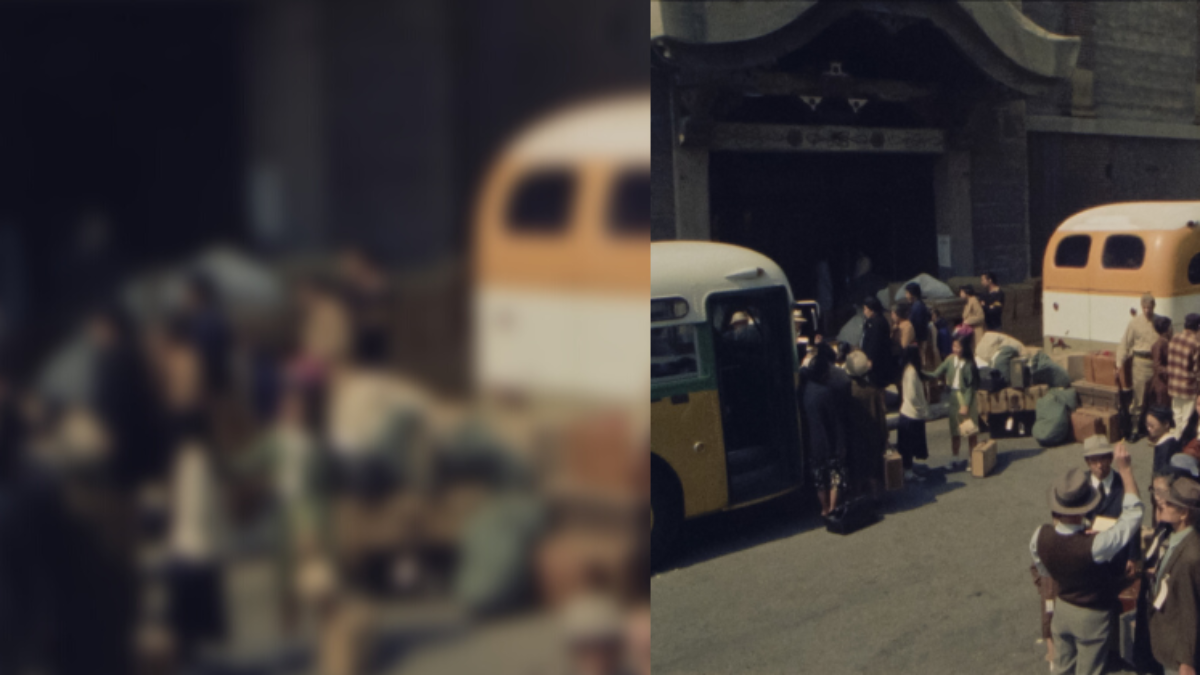When Asian Cinevision announced their program for the 46th Asian American International Film Festival, I gravitated immediately to the screening of a 4K restoration of “HITO HATA: Raise the Banner,” touted in the program as the “first full-length feature made by and about Asian Pacific Americans.” I had never seen it, and only vaguely recalled seeing clips or stills of its stars, Mako and Pat Morita, in what I can only assume was an Asian American media studies course at New York University decades ago.
Despite seeing a reemergence of screenings of Wayne Wang’s “Chan Is Missing” (1982) in the past ten years, a film widely regarded as the definitive pioneer of Chinese American filmmaking, the same could not be said for “HITO HATA,” which could easily make the same case for Japanese Americans. But Japanese American films did not follow in the same volume as Chinese American films did for “Chan.”

“HITO HATA” centers on the life of its narrator, Oda, a day laborer we find as an elderly man in Little Tokyo, living day to day in a small residential hotel. Oda is played by Mako, who was by then an esteemed veteran actor who had already attained 13 feature film credits starting as far back as 1959 and including an Oscar-nominated turn in “The Sand Pebbles” (1966). A side note, Mako also appeared in 1980 as Jackie Chan’s father in “Battle Creek Brawl,” an uneven early Jackie crossover attempt, which should also be regarded as Asian American with Chan playing a hard-knock Chinese restaurant worker who finds himself battling the mob in 1930s Chicago.
Oda is an issei, a first generation Japanese American, and his story is about wanting just enough to return to Japan to be somebody, to raise a single banner — “hito hata.” But like many others, their circumstances did not allow for a triumphant return. They stayed in America. This film is about sacrifice, but also regret. It is about custom and tradition, but also of being forgotten on a personal level if such customs and traditions are regarded solely as abstract ideas.
We are well into a new wave of Asian American cinema, but not the first. If the early 1980s saw the first wave of Asian American films culminating in Wang’s “Joy Luck Club” (1993), and the early 2000s saw “Better Luck Tomorrow” bring Asian American cinema back to mainstream visibility, this current wave – starting perhaps in the mid-2015s by my estimation – is the third. And it is certainly the most robust, diverse, and recognized by Hollywood. But if waves are meant to crash and recede, I don’t imagine I’m alone in hoping this is also the last wave; that we are now firmly ashore in the domain of American media.
In the Criterion Collection release of “Chan Is Missing,” there is a video extra of Ang Lee interviewing Wayne Wang about the film in which Lee says to Wang that before he saw Chan, the idea of making films in America never occurred to him. He couldn’t dare dream of it. Chan opened up this possibility for him and certainly many other filmmakers to follow. We are thankfully now in an era where we can plainly see and dream of a defined cinematic landscape. It would be easy to forget the films that came first.
Mako’s Oda is a life-long bachelor, but he doesn’t pine for any long lost love, at least not within the framework of this story. His regret, particularly after learning of the death of his long-time friend, is whether his life or any of his fellow Issei lives were ones well spent, to be remembered. He couldn’t be sure, but we can in the groundwork the issei laid to even have a Little Tokyo. They built a community, and it’s through that community that Oda finds the will to live and fight another day. If not for one’s self, then for others to finally one day raise the banner. This film is that banner and in that, “HITO HATA” so well-encapsulates that spirit both on screen and off. It helped point the way to this new wave of Asian American cinema, and it is up to us to keep the banner raised.
The remaster of “Hito Hata: Raise the Banner” screened at the 46th Asian American International Film Festival.

